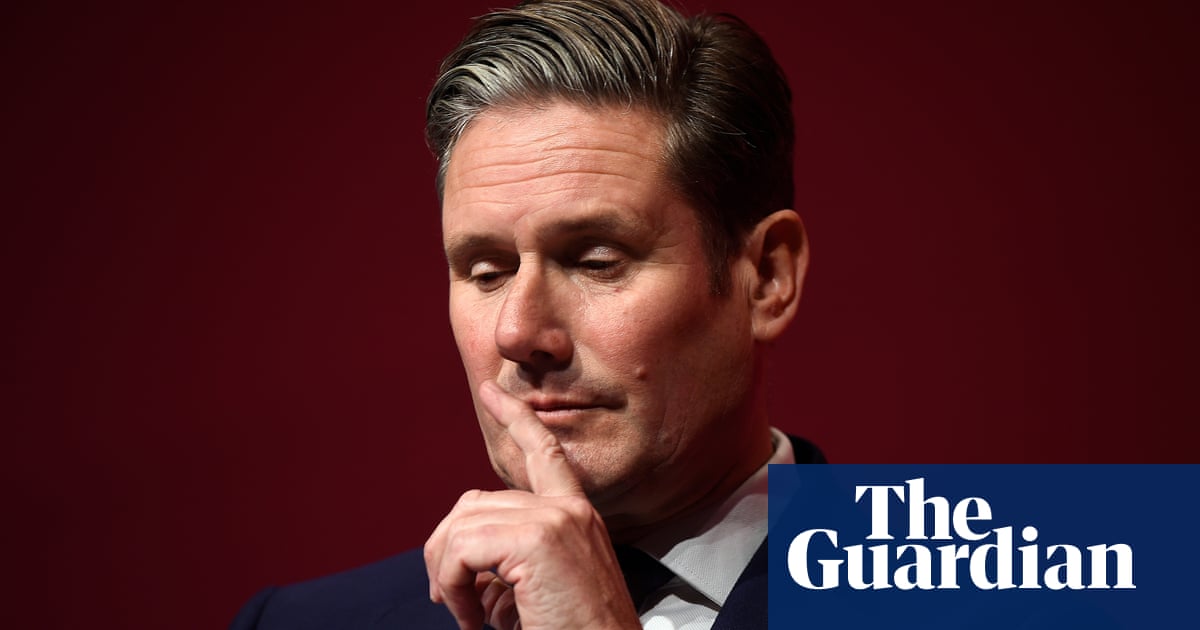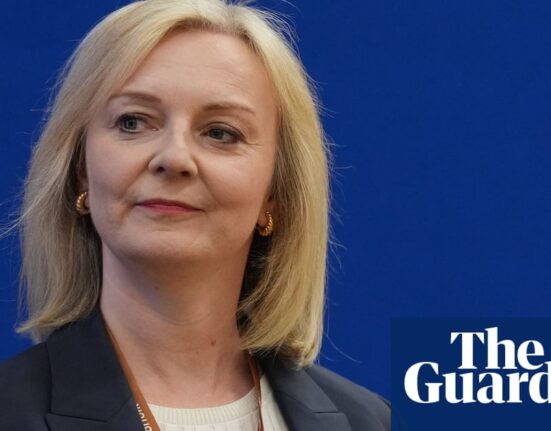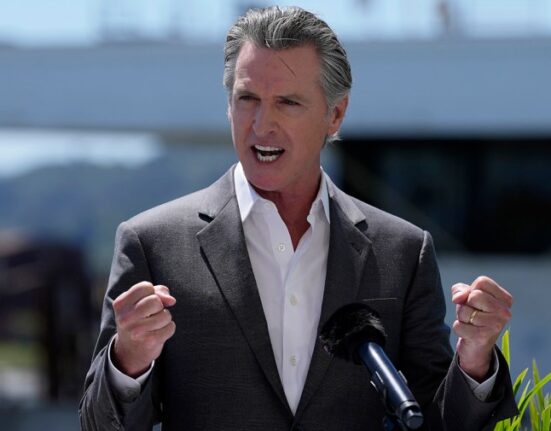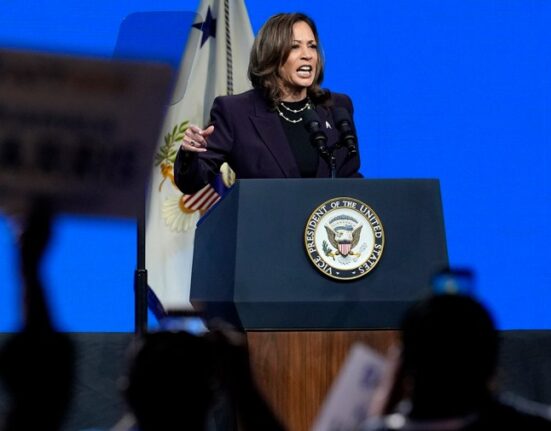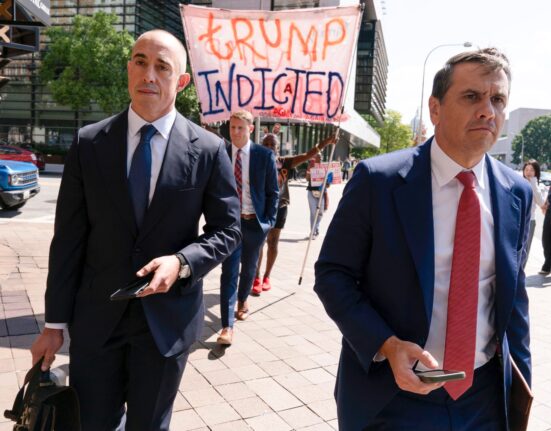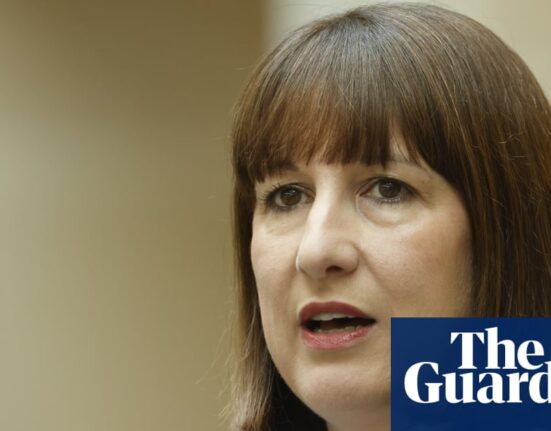Keir Starmer is on a collision course with unions after playing down the chance of real-terms pay increases for public sector staff in negotiations, prompting widespread warnings of a crisis in recruitment and staffing.
While Downing Street is not ruling out some above-inflation settlements, as could happen for junior doctors, Starmer warned unions to be prepared for disappointment ahead of the imminent findings of a series of pay review bodies.
In response, unions representing health staff and teachers said insufficient pay awards risked exacerbating crises in recruitment and retention for both sectors, with the main teaching union saying education in particular was “at breaking point”.
Speaking on a visit to Washington DC for the Nato summit, the prime minister was asked whether, with many calling for above-inflation awards in the coming public sector negotiations, he would “give the unions what they want”.
“No, is the answer to the last bit of that question,” Starmer replied. “Obviously there are a number of pay settlements to be gone through on an annual basis. But the finances are in a very poor state, I think that is obvious.
“And that’s why we’ve been careful in what we said going into the election, and we’ll be careful what we say coming out of it. In terms of the overall audit, what I’ve done at the moment, as you’d expect, is to prioritise the most significant and the most important.”
Public sector pay is likely to be one of the most immediate and public manifestations of the new government’s struggle to manage expectations when it comes to improving services amid a highly constrained fiscal situation.
With Starmer having repeatedly ruled out any increases in income tax, national insurance or VAT, and new tax revenues already earmarked, Labour has said it hopes economic growth will provide more money – but this would not be immediate.
Unions have repeatedly said declining real-terms pay is driving many people out of public sector roles, particularly teaching, nursing and medicine, and also making it harder to recruit new staff.
The National Education Union (NEU), the biggest union for teachers, pointed to research showing that a combination of increased workloads and stagnating pay was behind a big recent increase in the number of staff thinking about quitting the profession.
After a series of strikes, teachers at state schools in England accepted a 6.5% pay offer last year, with unions warning this was not enough to claw back years of real-terms pay cuts.
Daniel Kebede, the general secretary of the NEU, said: “This is not what we want to hear from the new prime minister. We expect an above-inflation teacher pay offer that is fully funded. Failing to provide properly funded pay increases will have severe costs in terms of recruitment, retention and the delivery of education. Education is already at breaking point. Another below-inflation pay rise will break it.”
The body that represents more than 1 million NHS England staff accepted a two-year pay agreement last year, but with Unite and the Royal College of Nursing (RCN) in disagreement.
Sharon Graham, the general secretary of Unite, which represents about 100,000 staff across the health sector, said: “The biggest crisis facing the NHS and other public sector areas is the inability to recruit and retain workers, caused by many years of pay freezes and below inflation pay rises. Experienced staff are leaving the NHS in droves.
“If we don’t sort out the crisis of people, we won’t sort out the crisis in the NHS. New scanners need staff to operate them. Whatever the plan, it will need more money. This is the undeniable fact.”
An RCN spokesperson said: “The next NHS pay award must be fair and come swiftly. We will consult our members on whether it meets their expectations. Any pay award must begin to turn around the staffing crisis in our health service.”
In another looming battle, Unite members working in local government overwhelmingly rejected a pay offer of just under 6%, the union said, with 85% of members turning it down.
Graham said the vote “must act as a wake-up call that the sector desperately needs an injection of funding to ensure the workers it depends on are paid properly and vital frontline services can be properly delivered”.
The new government is hopeful of soon resolving the 20-month dispute over pay among junior doctors, after talks between the British Medical Association (BMA) and Wes Streeting.
While the new health secretary has dismissed the idea of meeting the requested 35% pay rise, which the BMA says is required as junior doctors in England have had their pay cut by more than a quarter over the past 15 years, the possible multi-year deal could involve amounts above inflation.
Paul Nowak, the general secretary of the Trades Union Congress, said that while it was encouraging to see Streeting talking to the BMA, “there are going to be millions of other public sector workers who will be keen to get a decent pay rise this year”.
Nowak called on the government to publish the reports from the public sector pay review bodies “and use those as the basis of a positive, open discussion and negotiation with the unions about what pay settlements look like this year”.
He said: “In the medium term we’re going to have to have a roadmap to addressing recruitment and retention problems and pay rises across public services.”



